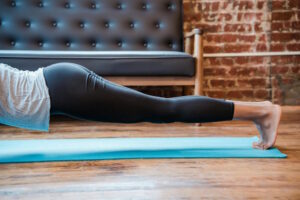
In the quest for stress relief and holistic well-being, the realm of Pilates offers a sanctuary of mindful movement and controlled exercises. To enhance the stress-relieving benefits of Pilates, the integration of specialized equipment adds a new dimension to the practice. By delving into the world of Pilates equipment, we discover a realm of possibilities that support relaxation, promote mindfulness, and cultivate a sense of tranquility.
Is Pilates good for stress relief?
Absolutely, Pilates is an exceptional method for stress relief. The deliberate and controlled movements, synchronized with mindful breathing, create a conducive environment for relaxation. As you engage in Pilates exercises, your focus is directed away from stressors and into the present moment – a mental shift that fosters mental respite.
Furthermore, the mind-body connection nurtured in Pilates means that physical tension associated with stress can be addressed and released through movement. The activation of the parasympathetic nervous system through mindful breathing triggers a relaxation response that counters stress-induced physiological reactions.
What exercise is best for stress relief?
While a variety of Pilates exercises contribute to stress relief, the “Hundred” exercise holds a special place. This classic exercise engages the entire body, focusing on controlled breath and dynamic movement. By coordinating breath with a rhythmic arm-pumping motion, you oxygenate the body and activate the parasympathetic nervous system.
To perform the “Hundred,” lie on your back with knees bent, lift your head and shoulders off the mat, and extend your arms by your sides. Begin pumping your arms up and down while breathing in for five arm pumps and out for five. The repetitive nature of this exercise, combined with the rhythmic breath pattern, creates a sense of flow and relaxation.
What is the best Pilates equipment?
Pilates equipment is designed to enhance the benefits of the practice and offer a dynamic range of movements. Among the various options, the Reformer stands out as one of the best Pilates equipment for stress-relieving workouts. The Reformer provides controlled resistance through a system of springs, allowing for precise and controlled movements.
The Reformer’s sliding carriage and adjustable spring tension offer a customizable experience that caters to different fitness levels and individual needs. By engaging in exercises on the Reformer, you target various muscle groups while promoting alignment, stability, and flexibility. This holistic approach supports both physical well-being and mental relaxation.
Which is better for anxiety, Pilates or yoga?
Both Pilates and yoga offer valuable tools for managing anxiety, and the choice between the two ultimately depends on individual preferences and needs. Pilates focuses on controlled movements and engages the core muscles, promoting physical strength and stability. The deliberate nature of Pilates exercises encourages mindfulness and the mind-body connection, which can alleviate anxiety.
On the other hand, yoga incorporates breathwork, meditation, and a variety of poses to promote relaxation and stress reduction. The combination of deep breathing and poses that stretch and release tension contributes to a sense of calm. Ultimately, whether you choose Pilates or yoga, both practices offer avenues for alleviating anxiety and fostering a tranquil mind.
Summarizing the Answers
Pilates equipment enriches the stress-relieving benefits of the practice, offering a range of exercises that promote relaxation, mindfulness, and holistic well-being. From the classic “Hundred” exercise to the versatile Reformer, each element of Pilates equipment contributes to a deeper engagement with the practice. Whether you opt for Pilates or yoga, both practices offer valuable tools for managing stress and anxiety. By immersing yourself in mindful movement and controlled breath, you embark on a journey that not only nurtures your body but also offers a haven of serenity for the mind.